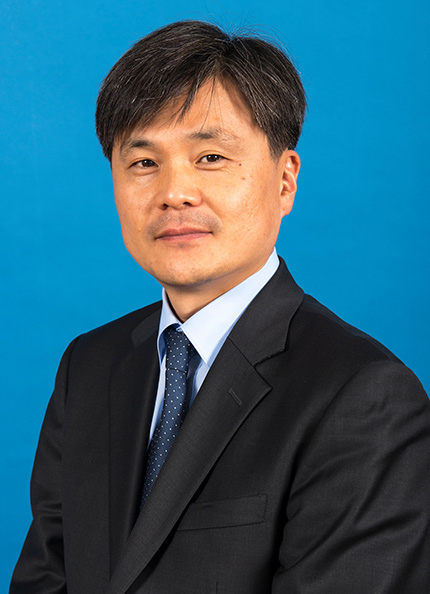
John H. Doran, M.D., F.A.C.P., Endowed Distinguished Professorship in Peripheral Neuropathy
Hyoung-gon Lee, PhD
John H. Doran, M.D., F.A.C.P., Endowed Distinguished Professorship in Peripheral Neuropathy
Associate Professor, Neuroscience, Developmental and Regenerative Biology
Hyoung-gon Lee is the John H. Doran Distinguished Professor in Peripheral Neuropathy at The University of Texas at San Antonio. Lee's research is focused mainly on the understanding of the pathological mechanism(s) underlying the selective neurodegeneration in neurological disorders such as Alzheimer's disease and peripheral neuropathy. Multiple molecular mechanisms identified from previous research in the lab which would lead to the development of effective therapy.
His research on peripheral neuropathy has received funding from the U.S. Department of Defense, the Cancer Prevention and Research Institute of Texas and the National Institutes of Health.
Lee's current Alzheimer's work suggests that there may be a new way forward in preventing and treating the illness. The neurons, once damaged by the disease, are unable to heal themselves. This is one of the reasons why Alzheimer's and other neurodegenerative diseases have such disastrous effects on the health of the human brain. Lee's recent research, however, suggests that the neurons in an Alzheimer's brain attempt to divide before they die through the mechanism of cell cycle re-entry. He's now working to understand why. Interestingly, this pathological cell cycle re-entry mechanism is not limited to Alzheimer's disease but is likely the fundamental neurodegenerative mechanism in various neurological disorders including peripheral neuropathy.
Lee's lab has recently developed the transgenic mice models to study the role of aberrant cell cycle re-entry in neurodegeneration and current research focuses on how cell cycle re-entry causes neurodegeneration in these animal models.